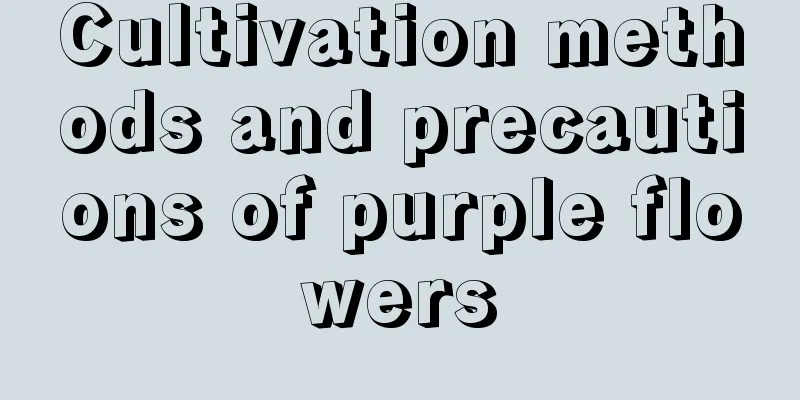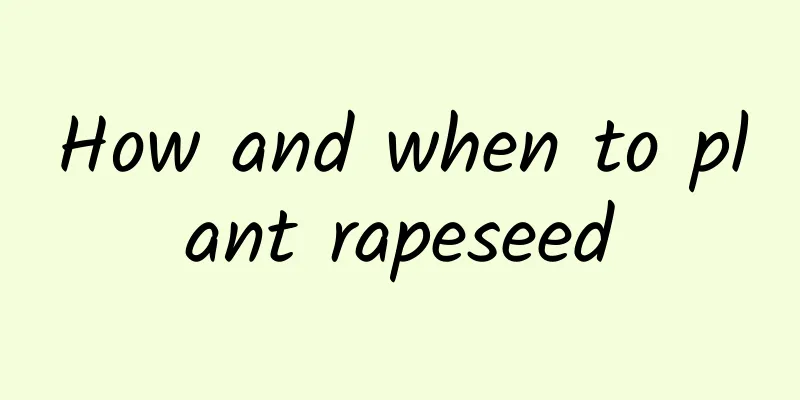Cultivation methods and precautions of purple flowers

How to grow purple flowerssoilPurple lily has no strict requirements on soil and can tolerate poor soil. But it blooms vigorously on fertile and well-drained sandy loam or loam. The culture soil should be mixed with leaf mold, sandy soil and garden soil in a ratio of 1:1:1. Apply sufficient fully decomposed compost and a small amount of bone meal as base fertilizer at the bottom of the pot. Temperature and lightTemperature: Purple lily likes high temperature and is heat-resistant. The suitable temperature for its growth is between 24-30 degrees Celsius. Light: Purple jasmine likes light, and full sun or half sun are ideal for cultivation, but it should not be shaded. Water and fertilizer managementWatering: When watering, just keep the soil in the pot moist, but during the growing season and dry weather, you need to water more frequently and sprinkle water around the pot frequently to increase the air humidity. The soil in the pot should not be too wet, otherwise the bulb will easily rot. Fertilization: Generally, apply diluted liquid fertilizer 2-3 times during the growing period to promote the growth and development of the seedlings. When the plants are about to bud and bloom, apply phosphorus and potassium fertilizers 1-2 times to ensure that the seedlings have sufficient nutrition during the bud and flowering periods. This will not only make the flowers large and colorful, but also promote the development of bulbs. When planting in a large area, attention should be paid to ventilation and proper shading. If planting in a small area or in potted plants, for ornamental varieties with many flowers and thin and weak branches, a support should be set up to prevent the branches from breaking. Reproduction methodPurple jasmine can be propagated by many methods, including scale propagation, bulb propagation, ball bud propagation, and sowing propagation. Things to note when raising purple liliesCommon diseases and pests of purple jasmineCommon pests of purple lilies: aphids, leafhoppers Common diseases of purple jasmine: mosaic disease, bulb rot, spot disease Purple lily flower maintenanceThe purple lily is a perennial herb of the genus Allium in the Liliaceae family. It has a terminal cyme inflorescence. The slender and upright flower stems emerge from the leaves, and there are dozens of pink-purple or lavender flowers on the top, which is quite beautiful. The purple lily blooms in May in East China and the flowering period can last until November. During the flowering period of purple lilies, it is necessary to add appropriate amount of farm compost such as bean cake and vegetable cake to prolong the flowering period and make the flowers bright and beautiful. |
<<: Cultivation methods and precautions of lisianthus
Recommend
The difference between trumpet creeper and morning glory
1. Different leaves The leaves of Trumpet Creeper...
Cultivation methods and precautions of fine-leaf cigar flowers
1. Flower soil It is best to use sandy soil as th...
Rabbit breeding techniques
Rabbits have become favorite pets of many people ...
How to propagate primrose
1. Seed propagation 1. Harvesting When the color ...
Does Hoya prefer shade or sun?
Does Hoya prefer shade or sun? Hoya is not an eas...
What are the cultivation methods and precautions of pentagonal flowers
Cultivation method of pentagonal flower The five-...
How many years can the four-season plum live?
1. How many years can you live? It is uncertain h...
Cultivation methods and precautions of oil painting wedding spider plants
The Oil Painting Wedding Chlorophytum is particul...
How to grow hydrangeas in winter?
Hydrangea , also known as hydrangea and purple hy...
How to make a rose arch with climbing roses
Selection of climbing rose arches Before making a...
Can pig skin be used as fertilizer?
Pig skin as fertilizer Pig skin can be used as fe...
What to do if you accidentally overwater your fortune tree? How to water it correctly
1. What to do if you accidentally overwater 1. St...
Disease and Pest Control of Pittosporum tobira
1. Brown spot disease Brown spots appear on the g...
When does winter bamboo shoots start to be harvested? When does winter bamboo shoots start to be harvested?
When to harvest winter bamboo shoots The time to ...
Is California poppy poisonous? Can it be grown at home?
Is California poppy poisonous? California poppy i...









